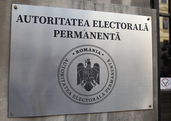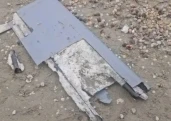The National Trade Union Bloc (BNS) is calling for a genuine reform of labour taxation, through reducing social contributions and protecting low and medium incomes, as well as transferring part of the social contributions currently owed by employees to employers, in order to allow a partial recovery of the purchasing power lost during this period, according to a press release sent to AGERPRES on Friday.
The demands are included in a document prepared ahead of meetings with representatives of the governing parties. BNS trade unionists were invited to discussions following the protest held on Wednesday, 12 November, in the capital, which was attended by more than 5,000 members. They will take part in working meetings on Friday, 14 November, with Save Romania Union (USR), and on Monday, 17 November, with the Hungarian Democratic Union of Romania (UDMR) representatives, agerpres reports.
According to BNS, Romania must implement the Resolution of the Committee of Ministers of the Council of Europe, which calls on the country to restore balance in the financing of social security systems, and under which employees may not provide more than 50% of social security funding.
BNS representatives also call for "ensuring identical tax treatment regardless of the type of income earned by individuals."
"There is a need for a legal framework addressing economic dependency, namely the regulation of a legal regime for professional categories whose incomes are not regulated, such as platform work. Under the current legislation, the line between dependent and independent status is defined strictly for tax purposes, which means that in many cases employment relationships are disguised as other types of contracts in order to obtain more favourable tax treatment," the document states.
The list of demands also includes regulating platform work and defining the tax regime for this type of relationship. "Labour taxation is excessive and must be reduced," the trade unionists insist.
BNS representatives also call for combating tax evasion to be designated as the Government's top priority.
"Tax fraud (as reflected in the VAT gap) and Romania's underemployment rate (compared with the EU average) are two correlated indicators that feed into one another: a higher VAT gap favours undeclared work. And vice versa: undeclared work, driven in part by excessive labour taxation in Romania, contributes to tax fraud," the release adds.
According to the same source, reducing the VAT gap should be the first priority, supported by digitalisation and by improving the efficiency and competence of the tax administration.
"A large-scale public investment programme is needed to use national and EU non-repayable funds efficiently, especially for railway transport infrastructure, local transport, agriculture and the food industry, research, public health and culture. It is also necessary to adopt state aid schemes encouraging investment in key industrial sectors in Romania (for example: the automotive industry, defence industry and shipbuilding)," the document notes.
Among other demands, the trade unionists call for regular consultations between BNS representatives and political parties, particularly regarding reforms affecting workers' interests.
To this end, union leaders call for the establishment of an institutionalised dialogue mechanism between BNS and parliamentary parties, including the appointment of contact persons in both the Senate and the Chamber of Deputies to ensure a direct communication channel for draft legislation under debate.
"We cannot accept the impoverishment of Romanian employees as the price for restoring economic balance. We therefore call for an end to government policies that fuel inflation and for the protection of workers' incomes," the document states. The unionists also call for an increase in the minimum wage, an end to the erosion of real wages, and genuine, expanded collective bargaining.
"An end to reforms based on cutting salaries and jobs in the public sector; transparent debates with social partners on reorganisation initiatives; and the introduction of clear and transparent criteria for evaluating public-sector workers. These should be established together with the trade unions in the relevant institutions and should value competence and professional training, as well as the quality and professionalism of workers. We firmly oppose politically motivated purges, which we anticipate may occur as a result of the restructuring process in the public sector," BNS notes.
The National Trade Union Bloc (BNS) held a protest on Wednesday in Piata Victoriei, Bucharest, against 'the decline in purchasing power and the anti-worker policies promoted by the Government.'
The protest was followed by a march to Piata Constitutiei, with symbolic stops in front of the main institutions responsible for the country's economic and social policies.
































Comentează